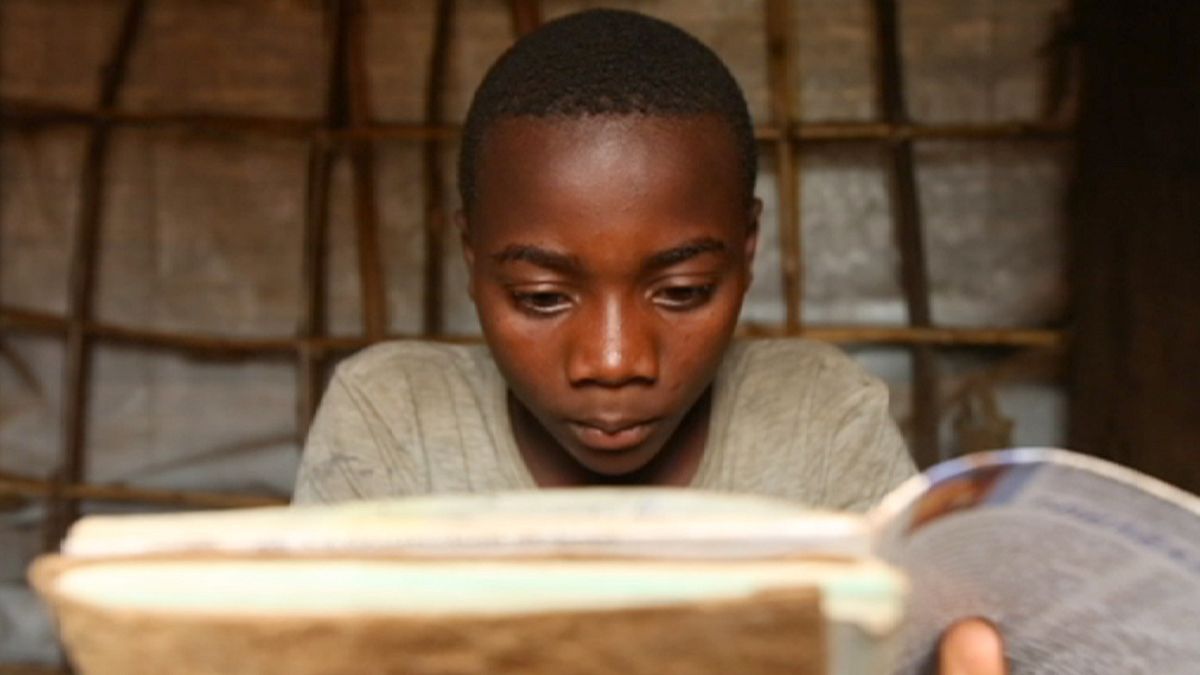In North Kivu, in the Democratic Republic of Congo, a two decades old conflict has flared up again, affecting tens of thousands of children.
One of them, Antoine Mbabazi, told euronews: “I’m scared of war, because people can come and kill your father or your mother.”
Another young victim, Esta Janine Kaiti, is distraught: “We have no news of my mother. I don’t where she is. There were gunshots everywhere. My mother woke me up and told me that we had to go. When we arrived at the Masisi Centre there were huge crowds there, and then I lost my mum.”
Antoine is terrified of the fighters: “When these people find you at home, they take everything you have. And if you are unlucky, they come with knives and they tear your body, they cut you into pieces.”
(function(d, s, id) { var js, fjs = d.getElementsByTagName(s)0; if (d.getElementById(id)) return; js = d.createElement(s); js.id = id; js.src = “//connect.facebook.net/en_GB/all.js#xfbml=1”; fjs.parentNode.insertBefore(js, fjs); }(document, ‘script’, ‘facebook-jssdk’));Post by Backpack Reports.
Antoine and Esta are displaced, like 750,000 other people in the province. They live in the Kalinga Camp, in Masisi territory.
When the war forced them to flee their homes last October, they lost everything. But this year they are back in a classroom, thanks to the EU Children of Peace initiative, and the Norwegian Refugee Council, which works to get refugee children back into school, aims to reduce the threats linked to the conflict and the presence of armed groups in the area.”
Frédéric Bonamy, from ECHO (EU Humanitarian Aid and Civil Protection Office) explained: “Children are often easy targets for armed groups and the main risks to them are from forced recruitment by armed groups. Sometimes they are used to carry out domestic tasks, or military ones. So children risk being engaged in the fighting and for girls especially, they risk ending up as sex slaves.”
Esta said she wants to make something of herself: “I was buying and selling little things and I thought, you know, my parents are dead. Am I just going to go on doing this all my life? So when I saw the others going to school, I went along with them to sign up.”
Antoine also felt the call of the classroom: “I hadn’t been to school for two years because my parents didn’t have any money. During that time I went out collecting firewood, which I sold and the money was used to feed the family. Life really was very hard for me.”
The Neema Primary School, where Esta and Antoine go, was burnt down last year by militias and rebuilt in February with money from the EU Nobel Peace Prize committee.
Over 500 schools were damaged or destroyed in the past year but now this school has more than 600 students.
NRC managed to register more than 400 children who had never been to school, using a condensed education system, catch-up classes and financial help for most deprived.
However fewer than 40 percent of the children living in displacement camps are enrolled in an educational scheme as parents just cannot afford to send their children to school.
